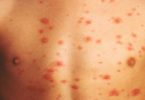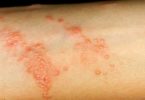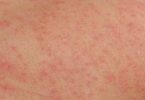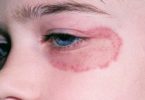What's in this article?
What is Dermatomyositis
Dermatomyositis is a rare inflammatory disease. It is an inflammatory myopathy, a condition that occurs when muscles become inflamed. It is one of only three known inflammatory myopathies. The most common symptom is weakness in the muscles. Dermatomyositis can affect both adults and children. Although there’s no cure for the illness, you may experience a period when you have no symptoms.
Dermatomyositis affects adults and children alike. In adults, dermatomyositis usually occurs from the late 40s to early 60s. In children, the disease most often appears between 5 and 15 years of age. Dermatomyositis affects more females than males.
Signs of Dermatomyositis
- Appearance of a rash on the eyelids, cheeks, nose, back, upper chest, elbows, knees and knuckles
- Scaly, dry or rough skin
- Trouble rising from a seated position, or getting up after a fall
- General tiredness
- Inflamed or swollen area around fingernails
Symptoms of Dermatomyositis
The most common signs and symptoms of dermatomyositis include:
- Skin changes. A violet-colored or dusky red rash develops, most commonly on your face and eyelids and on areas around your nails, knuckles, elbows, knees, chest and back. The rash, which can be patchy with bluish-purple discolorations, is often the first sign of dermatomyositis.
- Muscle weakness. Progressive muscle weakness involves the muscles closest to the trunk, such as those in your hips, thighs, shoulders, upper arms and neck. The weakness affects both the left and right sides of your body, and tends to gradually worsen.
Causes of Dermatomyositis
The exact cause of dermatomyositis isn’t known. However, similarities between it and autoimmune diseases have caused doctors to believe that there’s a link between the two. Autoimmune diseases occur when the body’s disease-fighting cells called antibodies attack healthy cells. Having a compromised immune system (from a viral infection or cancer, for example) may also contribute to the development of dermatomyositis.
Complications of Dermatomyositis
Possible complications of dermatomyositis include:
- Difficulty swallowing. If the muscles in your esophagus are affected, you may have problems swallowing (dysphagia), which in turn may cause weight loss and malnutrition.
- Aspiration pneumonia. Difficulty swallowing may also cause you to breathe food or liquids, including saliva, into your lungs (aspiration), which can lead to pneumonia.
- Breathing problems. If your chest muscles are affected by the disease, you may experience breathing problems, such as shortness of breath.
- Calcium deposits. Deposits of calcium can occur in your muscles, skin and connective tissues (calcinosis) as the disease progresses. These deposits develop earlier and are more common in children with dermatomyositis.
Treatment of Dermatomyositis ←read more






